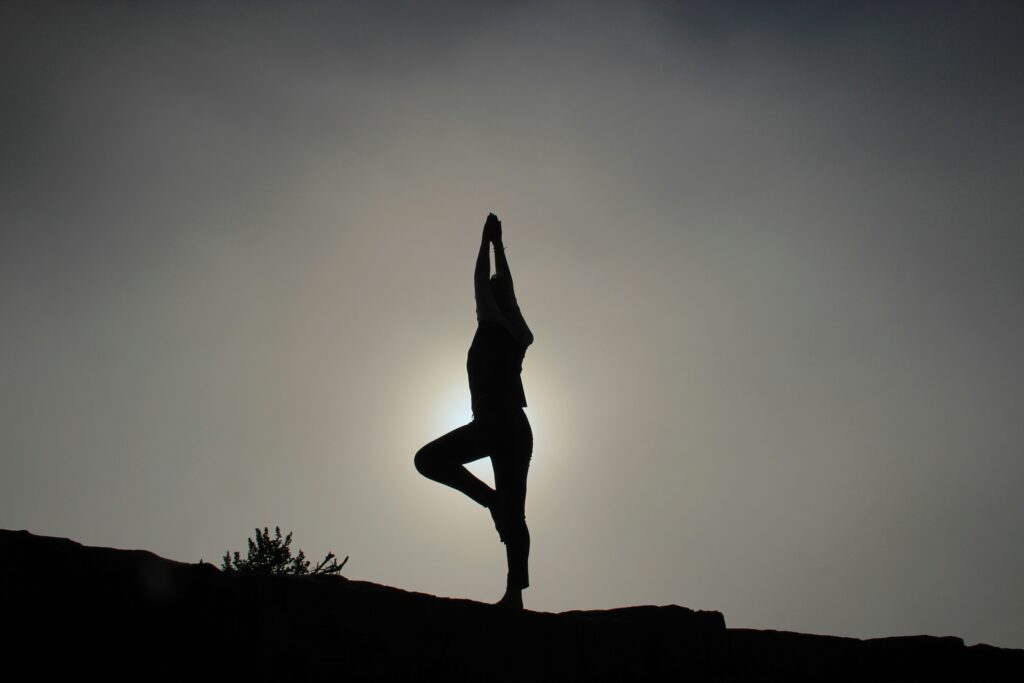During a sunny summer morning stroll through the park in Exeter, Devon, I noticed a large group of people practicing yoga on the grass. Their contortionism got me thinking: What is the point of yoga from an osteopathic perspective?
Is Yoga Good for Strength?
Yoga has its place in a holistic fitness regimen, but when it comes to building strength, it’s somewhat limited. It primarily involves isometric holds, where muscles contract without movement—think of a plank. While these exercises can be beneficial, they are the least effective and most time-consuming way to build muscle strength. Attending a weekly yoga class might make daily activities like getting out of a chair a bit easier, but significant changes in muscle size or shape are unlikely.

Is Yoga Good for Stamina?
It depends. Stamina typically refers to how long you can perform an activity. Since stamina is linked to strength, stronger muscles get less fatigued and can sustain activity longer. Yoga can improve muscle health by increasing blood supply and neurological control, which might enhance stamina. However, from an osteopathic standpoint, simpler and more effective ways to boost stamina include regular walking or gardening, which are also highly accessible here in Exeter.
“You can’t out-train a bad diet.“
Is Yoga Good for Flexibility?
Definitely! Yoga excels at improving flexibility because it predominantly involves stretching your muscles. If increased flexibility is your goal, yoga is fantastic. This can be particularly beneficial for osteopathic patients who need to improve their range of motion and alleviate stiffness.

Will Yoga Help Me Lose Weight?
It’s very unlikely. There’s a popular saying in the fitness industry: “You can’t out-train a bad diet.” This means that no matter how much you exercise, weight loss will be limited without a proper diet. Yoga is low-intensity and burns fewer calories than walking. For those looking to lose weight, focusing on a healthy, balanced diet is essential rather than relying solely on yoga.
“If you want to get stronger, perform strength exercises.”
So, What Am I Saying?
Yoga is excellent for flexibility, but it’s not the best for other aspects of health from an osteopathic viewpoint. For effective strength building, consider exercises like squats and push-ups, which involve movement and build more muscle. To improve stamina, try brisk walking or other cardiovascular activities that also lower blood pressure, blood glucose, and heart rate.
Movements that mimic daily activities are more likely to enhance your daily function than some of the manoeuvres in a yoga class. If you want to get stronger, perform strength exercises. If you want to walk longer, increase the length of your walks. Whatever your goal, you need to work specifically towards it.
At our osteopathy practice in Exeter, Devon, we emphasise a balanced approach to fitness that incorporates various forms of exercise tailored to your individual needs. While yoga can be a valuable component of this regimen, understanding its limitations and complementing it with other activities can lead to more comprehensive health benefits.
August 9th, 2024. Billy Challis, Osteopath